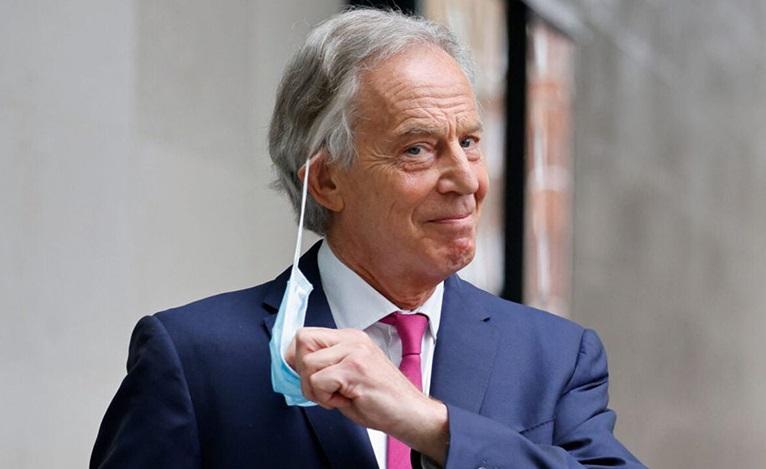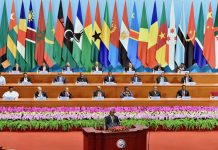Africa-Press – Mozambique. Former British Prime Minister Tony Blair has called for a just transition to net zero greenhouse emissions for Africa as countries prepare to meet in Glasgow in November for the UN Climate Change Conference (COP26).
Writing the foreword to a report from the Tony Blair Institute for Global Change, ‘A Just Transition for Africa: Championing a Fair and Prosperous Pathway to Net Zero’, he warns that “placing climate-change mitigation and Africa’s development in opposition will be counterproductive”.
Blair stresses that the future for Africans will be determined by “our success in both addressing the climate crisis and supporting the continent’s development. One cannot be delivered without the other”.
He points out that “as with its development plans, Africa’s response to climate change must be Africa-led. For their part, high-income countries must support African nations to both deliver their development visions and respond to climate change”.
For Blair, “high-income countries must bear the greatest responsibility for cutting emissions and financing measures globally to adapt to the inevitable consequences of climate change. These countries developed in large part by exploiting their fossil-fuel reserves; as well as bearing the most responsibility, they also have the greatest capacity to act”.
He notes that the approach to net zero emissions in Africa often fails to take into account “the urgent need to develop and industrialise across much of the continent”.
This theme is taken up in the body of the report and Mozambique is one of the examples where “the future of Africa’s fossil-fuel endowments gets to the heart of the climate-justice issue”. Here, the report highlights a very real dilemma: “on the one hand, it is problematic to question the desire and rights of African countries to monetise their (oil and gas) reserves as many high-income countries have done. On the other, the science of climate change is undeniable, and it serves neither the global effort to reduce carbon emissions nor Africa’s long-term interests for the continent to be locked into a high-carbon pathway”.
The report points out that the Mozambican government “has prioritised the development of its gas resources, not only to generate export revenues, but also to stimulate industrialisation at home, with up to a quarter of the gas planned for use in domestic power, fuel, and fertiliser production”.
It claims that once developed, the natural gas found so far will increase Mozambique’s GDP by 40 per cent per annum and argues that “in a country where nearly half the population lives beneath the poverty line and the annual income per capita is approximately 500 dollars, it is difficult to argue with this approach”.
For the authors of the report, “this is why climate change and the necessity for reductions in fossil-fuel consumption present major risks to countries, such as Mozambique, that are looking to follow the example of high-income countries in exploiting carbon deposits to drive their own development”.
Blair points out that “ultimately, Africa must achieve net zero, but not at the expense of its development. If high-income countries attempt to limit development opportunities – for example, by ceasing funding for energy generated by gas, without making provisions for equally affordable alternatives – they risk condemning countries to continuing poverty and food insecurity”.
He concludes that “the tools do exist to strike the right balance. But for Africa to prosper and ultimately achieve net zero … will need real partnership and real leadership, starting with the agreements reached at COP26”.
Enormous quantities of natural gas have been found in the northern Mozambican province of Cabo Delgado which are due to be monetised through three projects to liquefy the gas for export. The Italian company ENI is progressing well with its Floating LNG facility which will produce over three million tonnes of LNG per year beginning in 2022. All of its output will be bought by the British company BP.
The French company TotalEnergies will develop an onshore LNG plant with production beginning in 2026 and ramping up to 13.1 million tonnes of LNG per year. The third project, led by the US giant ExxonMobil, has yet to reach its final investment decision but its plans are based on producing 15.2 million tonnes per year of LNG.
According to the government, the Cabo Delgado gas reserved for domestic use will not only pave the way for industrialisation and import substitution but will also enable the further electrification of the province, leading to improvements in living standards and job opportunities. The urgency of this is underlined by forecasts by the African Development Bank that climate change could cost the African continent 50 billion US dollars annually by 2040 and could lower Gross Domestic Product by up to 3 per cent per year by 2050.






